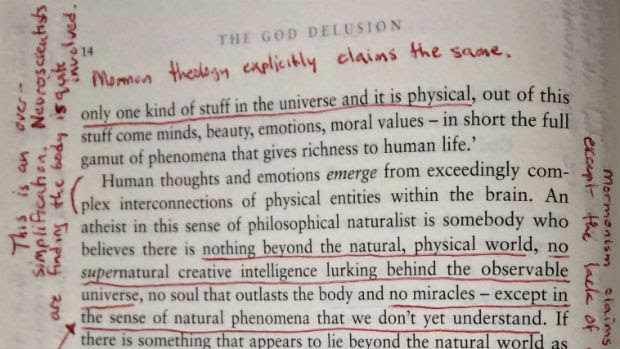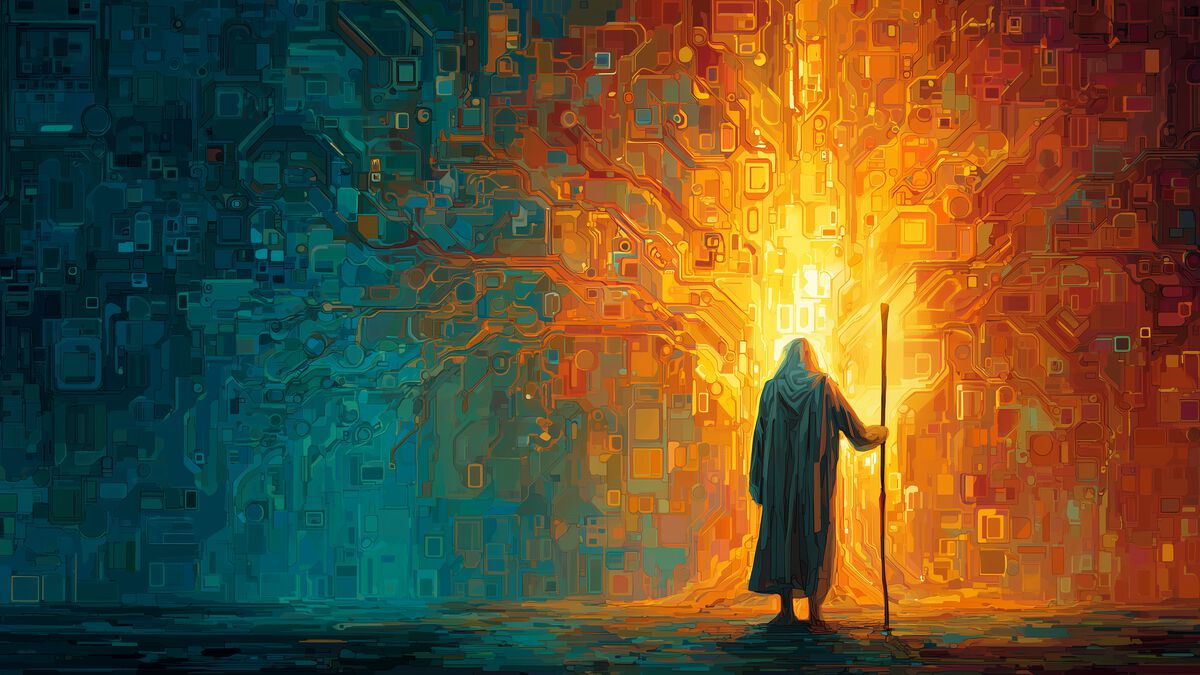Chapter One of The God Delusion by Richard Dawkins
Lincoln Cannon
30 October 2007 (updated 3 January 2026)
I recently read The God Delusion by Richard Dawkins, who I respect as an excellent (and, dare I say, inspiring) evolutionary biologist. Dawkins has become a prominent atheist in the popular media, selling over a million copies of his book and galvanizing an intellectual crusade against religion.
In this and other posts to come, I’m going to write some thoughts in reaction to Dawkins’ book. Before getting started with that, however, I’d like to summarize my thoughts and qualify them. First, to summarize, Dawkins misrepresents and misunderstands religion as a whole. Second, to qualify, Dawkins justifiably expresses anger and distrust regarding many particular aspects of religion.
His view of religion is more black and white than mine. And, although sympathetic, I disagree with him. God is not always a delusion. Let me explain.
In the preface, Dawkins initiates the mischaracterization of religion that he perpetuates throughout the book. He quickly points out an array of evils performed in the name of religion. And then he suggests that any goods performed in the name of religion have been done so only because religion usurped the inspirational role.
This makes about as much sense as holding someone personally responsible for all of her mistakes while simultaneously claiming that her benevolence is merely a deterministic genetic effect for which she merits no positive esteem. With such a context in place, Dawkins sets out to slay the straw man.
In chapter one, “A Deeply Religious Non-Believer,” Dawkins divides religion into two categories: Einsteinian and supernatural. The former he describes as a sort of atheism that uses religious terminology in confusing ways. The latter he describes more or less as dogmatic superstition.
Naturalistic theists don’t really exist, he suggests. And for “God” to retain meaning, we must understand it “to denote a supernatural creator that is appropriate for us to worship.” Furthermore, he argues, only atheists believe that “there is nothing beyond the natural, physical world, no supernatural creative intelligence lurking behind the observable universe, no soul that outlasts the body and no miracles - except in the sense of natural phenomena that we don’t understand yet.”

Of course, religion is actually more diverse than he acknowledges, as illustrated by Mormonism. Joseph Smith described God quite naturalistically: a material being that found himself amidst material chaos and set about organizing it.
Joseph taught further that everything is material, even that which religious persons call “spirit,” which he associated with light. The spirit in each of us, he claimed, endures beyond death. However, this is not necessarily a supernatural claim. With a contemporary perspective, and an interest in charitable interpretation, I think of our spirits as patterns of energy that precede and recede from their manifestation in our mortal bodies.
Regarding miracles, Mormonism has a long tradition of understanding them to be law-abiding events that are only temporarily beyond our understanding.
In a phrase or two, then, Dawkins undermines his over-generalized argument against religion: “I am calling only supernatural gods delusional … a theist believes in a supernatural intelligence.” As a matter of fact, not all religious or theistic persons put their faith in supernatural gods.
Dawkins does attempt to address this criticism, by referencing pantheists and those who express faith in metaphorical gods. And he suggests that these are atheists in disguise.
However, this does not account for the reality that these persons do not consider themselves atheists. Nor does it account for the fact that others (like Mormons, who arguably combine panentheistic and humanistic ideas into their theology) actually do maintain faith in powerful material naturalistic deities. Again, despite the inconvenience for Dawkins, religion is more diverse than he acknowledges.
Stay tuned for my thoughts on chapter two and beyond. In the mean time, what do you think?
Richard Dawkins
Richard Dawkins is an evolutionary biologist and author, best known for his work on gene-centered evolution. He has published caricatures and misrepresentations of religion to promote atheist approaches to science. In the process, he has also, unintentionally, provided support for more robust approaches to theism. Here are articles that I've written in response to Richard:
- Chapter One of The God Delusion by Richard Dawkins
- Chapter Two of The God Delusion by Richard Dawkins
- Chapter Three of The God Delusion by Richard Dawkins
- Chapter Four of The God Delusion by Richard Dawkins
- Inspired by Richard Dawkins and The God Delusion
- Evolving Gods and Richard Dawkins
- Richard Dawkins Advocates Cultural Bigotry



